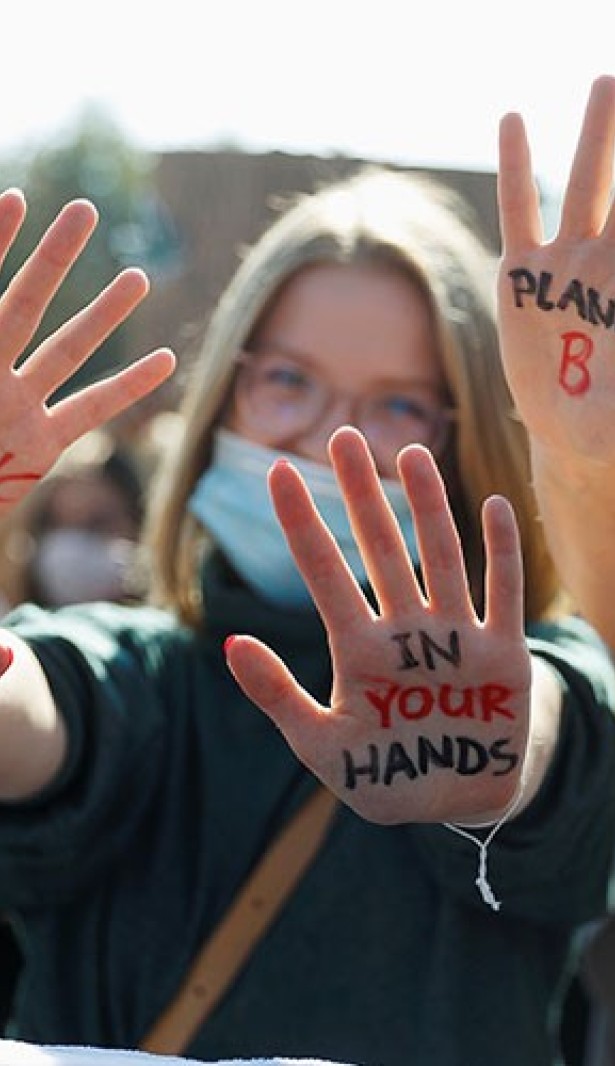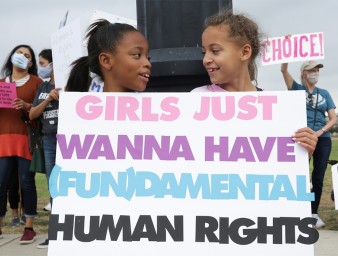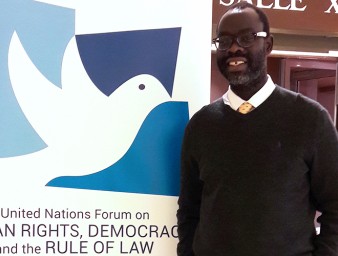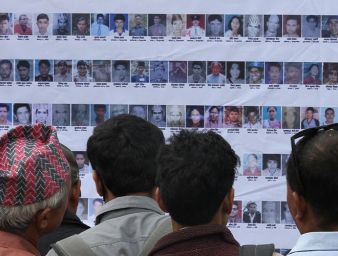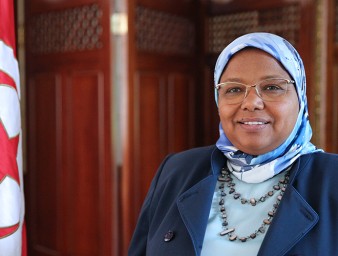Right to participation matters more than ever: UN Secretary-General
25 September 2020
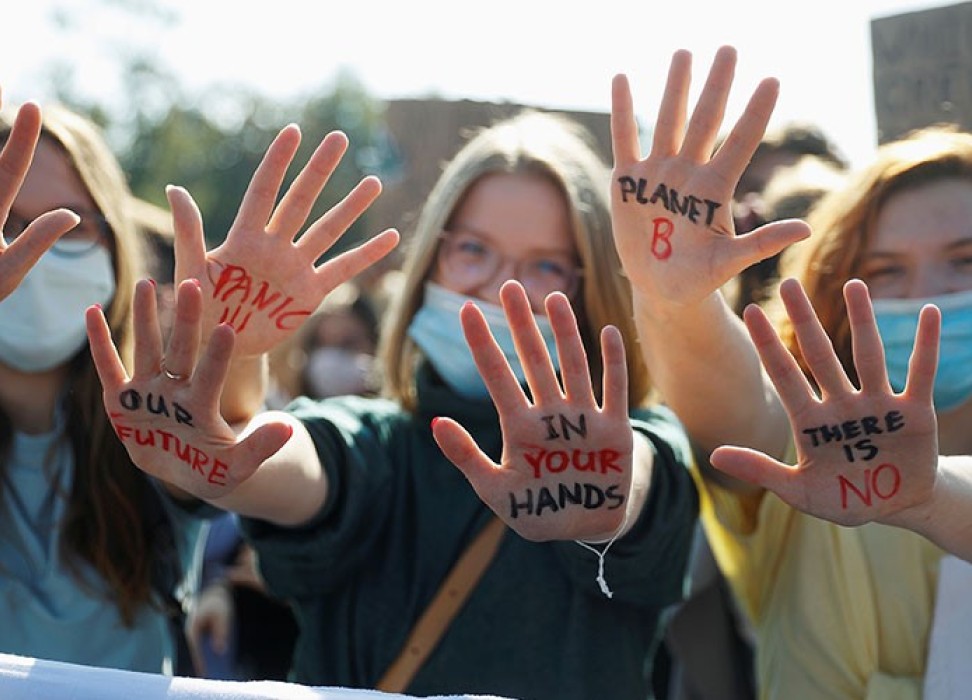
In times of crisis, the right to meaningful participation matters more than ever, Secretary-General tells OHCHR UN General Assembly event
Meaningful public participation in decision-making is a human right that must be defended and enhanced in the face of pushback, an imperative heightened by crises such as the COVID-19 pandemic, Secretary-General Antonio Guterres has told an OHCHR event at the UN General Assembly.
Speaking at the virtual event featuring UN High Commissioner for Human Rights Michelle Bachelet, and representatives of Member States and civil society, the Secretary-General underscored the multiple crises facing political leaders and societies worldwide.
“The window to address climate change is almost shut. Inequalities and marginalization have reached new heights. The COVID-19 pandemic has caused human suffering on a massive scale and brought economies to a standstill. Decades of advances in global health, development, poverty reduction, equality and human rights are at risk. People across the globe are loudly expressing their discontent. They lack confidence that the political process can work for them,” the Secretary-General said.
These crises have “put a magnifying glass on the social and economic injustices that bedevil our societies,” he said.
“They are an enormous governance challenge for societies and for the global community. Overcoming them requires approaches driven by unity, solidarity and compassion. For that, we need governance models and structures that work for the common good, with an intergenerational perspective. We need to prioritize the rebuilding of trust between people, institutions and leaders. And we need leadership that is representative of both men and women in our societies.”
“The key to reinvigorated and reimagined governance lies with truly meaningful participation of people and civil society in the decisions that affect their lives,” he said, underlining that popular discontent reflects not only impatience with he status quo but also a desire to play a part in bringing about positive change.
“Participation in public affairs is a fundamental human right and an underutilized tool for better policy making. It deepens our understanding of issues and helps identify better solutions. It ensures that concerns are heard, reducing social tension and preventing violence. It leads to a greater sense of ownership, allowing effective implementation. It can be the difference between progress and disarray,” he said.
Global pushback
Despite its clear advantages, the right to participate is under attack, the Secretary-General said.
“In many places around the world, participation is being denied and civic space is being crushed. A global pushback on human rights has placed participation in its crosshairs. We see repressive laws and restrictions on the work of journalists and human rights defenders, especially women -- often ending in murder or jail on spurious charges. Governments, often operating under overly broad definitions of terrorism, abuse new technologies to curtail basic freedoms of media and civil society groups,” he said.
“As civic space shrinks, so, too, do human rights,” he warned.
High Commissioner Bachelet underscored the Secretary-General’s message.
“Protecting and respecting the right to participation is a legal obligation for every Member State. But it is also a major asset to governments, even if not always recognized as such,” she added.
“To be ‘meaningful and effective’ participation must not be merely formal or tokenistic; it must have an actual impact on decisions; and be timely and sustained. And, crucially, participation must be inclusive, extending participation most especially to marginalized and vulnerable groups.”
Deep global urgency
In her remarks, the High Commissioner told the event that it was important to keep five messages in mind:
- participation is an essential principle of governance;
- it is key to achieving the core purposes of the United Nations;
- that not only is participation itself a human right, it also supports and is dependent on other rights that are collectively essential to effective governance, development and peace;
- when people are prevented from participating in shaping decisions that affect them, the consequences for governance can be severe;
- and the strengthening of participation is a concern of “deep global urgency”.
“Our world is at a governance cross-roads. The pandemic has zeroed in on, exposed and found fuel in the inequalities that result from weak governance of development, climate change and peace and security. The continued surge of protest movements across the world reflects these socio-economic and political crises – and inadequate prior opportunities for participation. No government can afford to ignore these powerful demands for change,” she said.
The event, entitled Participation, Human Rights and the Governance Challenge Ahead, was organized by OHCHR’s New York Office and co-sponsored by Argentina, Costa Rica, Denmark, the European Union, The Gambia, the Republic of Korea, Ukraine and Uruguay.
Speakers, from among Member States and civil society, referred variously to the importance of participation at local, national and international levels; the role of participation in helping a country overcome past human rights violations and crisis; participation as a vital tool to overcome the COVID-19 pandemic; the crucial importance of gender in participation; and the grave situation of indigenous persons and minorities when they are excluded from participating in governance.
Among the civil society speakers was Satta Sheriff, a youth campaigner who has been named by the United Nations as a Young Leader for the Sustainable Development Goals and is Founder and Executive Director of Action for Justice and Human Rights, in Liberia.
“Today’s conversation is crucial,” she said. “Evidence has shown that when young people are given the space to participate, our communities become better and safer places, developmental agendas are easily achieved…. Better laws are made, innovative ideas are created, and the world takes a step closer to achieving equality.”
“All we need is the right space, the right opportunity, political willpower from government, and resources,” she said. “We all want the same thing: a just, peaceful and sustainable world.”
